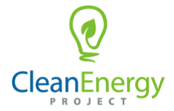 |
|
Las Vegas and Washington, D.C., June 21, 2018 – Today, the Clean Energy Project (CEP) and the Advanced Energy Economy (AEE) announced they have delivered a policy roadmap to the Nevada gubernatorial campaigns of Republican nominee Adam Laxalt and Democratic nominee Steve Sisolak outlining how Nevada can grow as a clean energy leader and create jobs. The policy roadmap, “Nevada’s Clean Energy Roadmap: How the next governor can make Nevada’s energy system more secure, clean, and affordable while driving job creation and economic growth,” outlines key market-based policy considerations Nevada’s next governor can pursue to capture the billions in investment dollars and thousands of jobs that come from embracing the clean energy industry.
“This roadmap charts a path for accelerated economic growth for Nevada – one that we anticipate will spur billions in economic growth and thousands of good paying jobs for the state” said Ray Fakhoury, State Policy, Advanced Energy Economy. "We encourage the next governor of Nevada to adopt these energy policies into their platform as economic development tools that harness the economic potential of the clean energy industry.”
In its policy roadmap, AEE and CEP presented six key principles for the campaigns to consider:
- Increase the Renewable Portfolio Standards (RPS) to secure Nevada’s position as a national clean energy leader. The addition of higher renewable energy targets has the potential to generate an additional $5 billion in wages and create 92,000 jobs in the state. This policy mechanism would also stimulate the development of clean energy resources beyond solar and wind, like battery storage, demand response, microgrids, and electric vehicles that reduce energy waste, improve the reliability and resilience of the grid, and keep consumer dollars in state.
- Expand access to clean energy by establishing a community solar program. Many Nevadans still face barriers to accessing clean energy. The state currently does not have a community solar program, which would offer an option for customers, both large and small, to purchase a portion of a large renewable project. Community solar has the potential to meet the needs of a broad range of customers — from residential consumers all the way to large corporations — and has proven to be successful in both regulated and deregulated energy markets.
- Establish an energy storage requirement. Energy storage is innovatively changing the way to think about electricity and the grid. Strategic deployment of storage can manage supply and demand, shift load to improve grid reliability and resilience, support higher levels of low-cost renewables on the grid, and maximize the value of all resources, whether they are large projects or smaller distributed resources.
- Encourage the electrification of the transportation sector. While these efforts are a substantial step forward, more can be done to incentivize the growth of EVs in the state. The next governor should set an EV goal for the state to strive towards. This will send a clear signal to businesses, consumers, and regulators about Nevada’s ambition to lead the emerging industry of transportation electrification.
- Expand access to cost-effective energy efficiency and demand response investments. Energy efficiency is the lowest cost and most readily available resource to meet energy demand. Both energy efficiency (savings from reducing energy waste) and demand response (payments for targeted reductions in energy use during periods of peak demand) have the potential to save money for residents and businesses and create jobs in Nevada.
- Modernize the electricity system to focus on consumer needs. While various steps were taken to modernize the grid during the 2017 legislative session, Nevada stands to make additional gains by modernizing its energy system to allow innovative technologies to thrive and meet consumer needs.
“Nevada has been on the forefront of the clean energy development, boasting more than 25,000 clean energy jobs” said Karen Wayland, Ph.D., Executive Director of Clean Energy Project. “With corporate demand for clean energy on the rise, embracing these policies could secure a legacy as a job-creating governor while making Nevada a more attractive place to do business for both buyers and sellers of innovative energy technologies.”
In addition to these policies, the platform also includes executive actions and short, medium and long-term policy options that could further ignite economic growth through the development of clean energy resources.
About Advanced Energy Economy
Advanced Energy Economy (AEE) is a national association of businesses that are making the energy we use secure, clean, and affordable. Advanced energy encompasses a broad range of products and services that constitute the best available technologies for meeting energy needs today and tomorrow. AEE’s mission is to transform public policy to enable rapid growth of advanced energy businesses. AEE and its state and regional partner organizations are active in 27 states across the country, representing more than 1,000 companies and organizations in the advanced energy industry. Today, 3.4 million people work in the $200 billion U.S. advanced energy market. Learn more at www.aee.net and track our latest news @AEEnet.
About Clean Energy Project
Clean Energy Project, Inc. (CEP) is a nonprofit, non-partisan organization dedicated to powering a cleaner, more sensible energy future through education and engagement with policy makers, business and community leaders, and citizens on the benefits of developing a clean energy economy. Learn more at cleanenergyprojectnv.org and @
Media Contacts
AEE: Monique Hanis, 202-391-0884 (O), 202-236-8220 (C), mhanis@aee.net
CEP: Karen G. Wayland, Ph.D., Executive Director, (702) 987-4556, kwayland@cepnv.org
